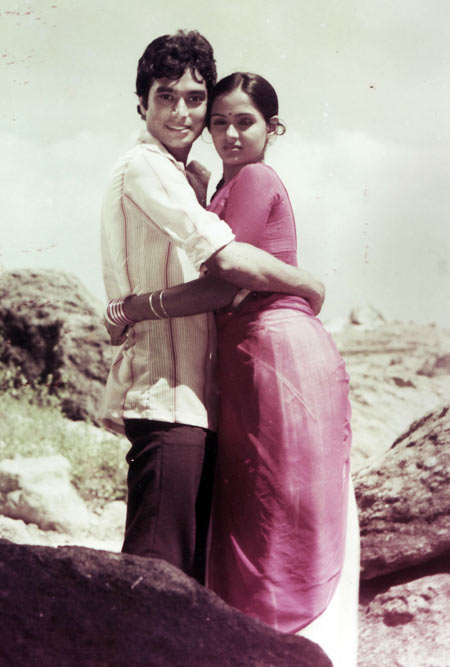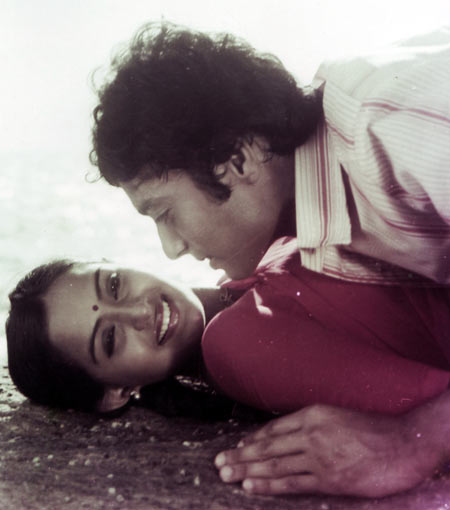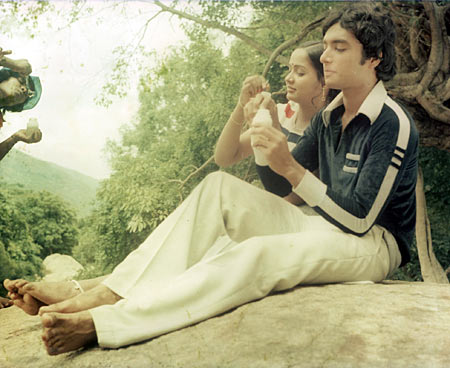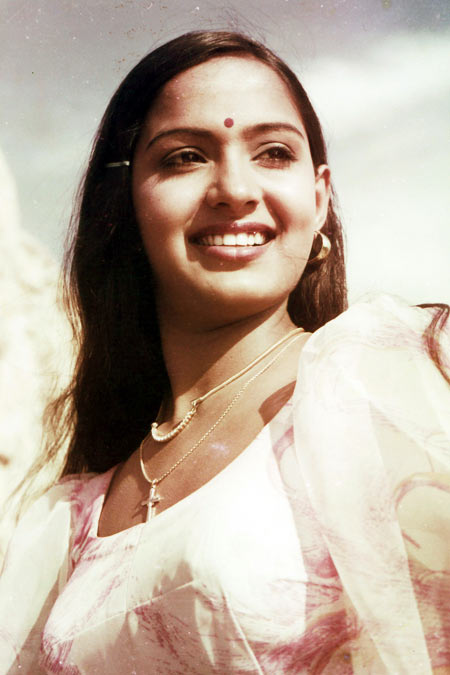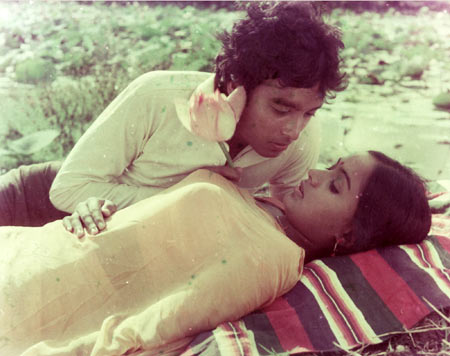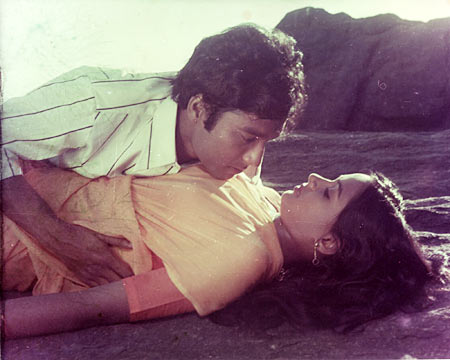 | « Back to article | Print this article |
The film that revolutionised romance in Tamil cinema
As director Mani Ratnam's new movie Kadal features Gautam Karthik and Thulasi Nair, we take a look at the movie that brought their parents -- Karthik and Radha -- together as actors for the first time.
That was Bharatiraja's Alaigal Oyvathillai, which revolutionised romance in Tamil cinema.
Director Bharathiraja is known for his classic movies that have an intense romance as their central theme. The films also had some sort of social message, usually centred on a current topic. It offered a dramatic solution that captured peoples' imagination in a huge way.
To say that Alaigal Oyvadhillai is one such would be an understatement.
Bharathiraja's movies broke bounds completely
Hitherto, romance in Tamil cinema had always followed a set pattern. Movies were ruled by certain top actors; dialogues, songs and even the sets went according to a formula.
Bharathiraja's movies broke those bounds completely. He took cinema into the fields, barren lands, and thorny bushes of rural Tamil Nadu as in Alaigal Oyvadhillai (The waves never cease).
The lead actors were truly young
Although the story itself might have been a familiar one -- that of a Hindu boy falling in love with a Christian girl -- the way it was handled was exciting.
For one thing, Bharathiraja's leads were unlike the reigning stars of the day: they were truly young. They were chosen for their youthful appearances, and the fact that this was their debut film, added to the excitement.
Radha fascinated viewers on sight
With her dark, expressive eyes, the Malayali Radha fascinated viewers on sight.
Karthik, with his pedigree as an actor's son, not to mention his refreshing performance, added to the movie's charm.
The couple was unlike any other seen on screen before; their dialogues, and the way the screenplay unfolded, were striking. Bharathiraja touched upon subjects that were taboo and brought religious differences to the fore.
One of the factors that contributed to the movie's success was its sensuality, especially evident in songs such as Aayiram Thamarai, which topped the charts.
The music was composed by maestro Ilaiyaraja. The numbers focused on the sexuality of two youngsters in love, and set hearts racing. Although there was some flak from moralists, most viewers appreciated it.
'Silk' Smitha appeared in an unusual role
"Silk" Smitha, usually relegated to item numbers or characters that lured the hero, appeared in an unusual role this time, as sister-in-law of the heroine, and a woman caught between the young girl's romance and her husband's anger. Her performance showed a depth that surprised many.
The film's climax was revolutionary for those days, and spawned an entire set of movies that featured the lead pair walking off into the sunset together, holding hands.
Some argued that it was unrealistic, but the idealistic ending captured the hearts of many.
It was as though Karthik and Radha were acting out their own lives onscreen
For Karthik and Radha, it was as though they were acting out their own lives onscreen: their gentle romance, unfolding on the shores of a beach or amidst a forest, was new, intimate, and untouched by artificiality.
Small wonder, then, that Karthik received the Best New Face Award from the Tamil Nadu Government in 1980, for his performance.
The movie was later remade in Telugu as Seethakoka Chiluka.
